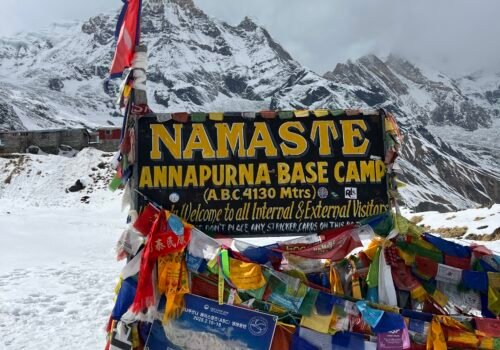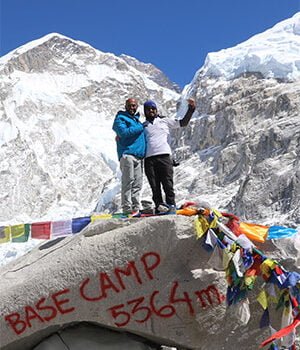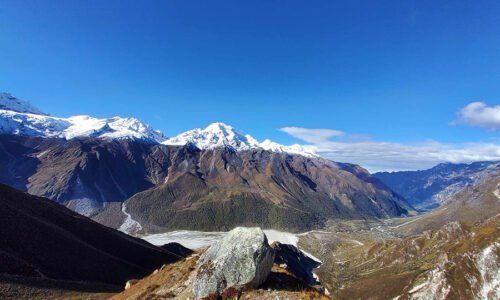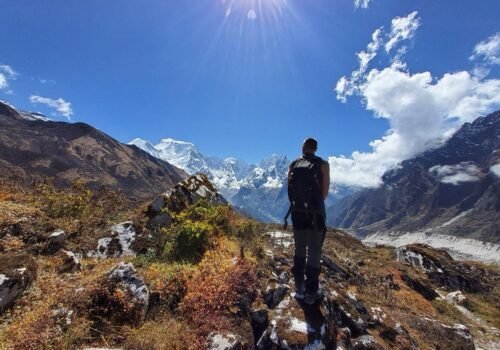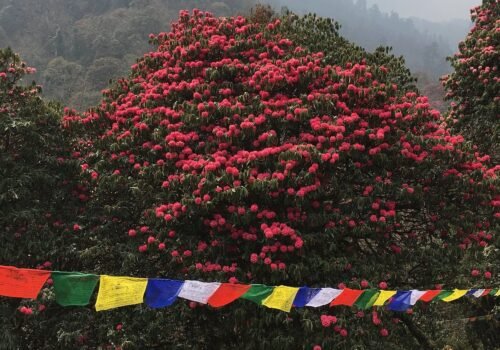Langtang Region Treks Full Guide | Trek Info, Trek Types, Routes, Permits, Cost, Equipments
3 Jan 2023 9 min to read
Langtang is a region in Nepal located north of the Kathmandu Valley. Langtang region is the least explored region which is also popular for off-beat trekking. This region has Langtang National Park which has a diverse range of flora and fauna, as well as its stunning mountain scenery in the vicinity.
Several trek routes can be taken in the Langtang region, ranging from five to fifteen days in length. These treks mostly start from the village of Syabrubesi, which can be reached by bus from Kathmandu. Outdoor Himalayan Treks offers you a complete Langtang Region Treks Full Guide | Trek Info, Trek Types, Routes, Permits, Cost, and Equipments. Some popular treks in the Langtang region include:
Langtang Valley Trek
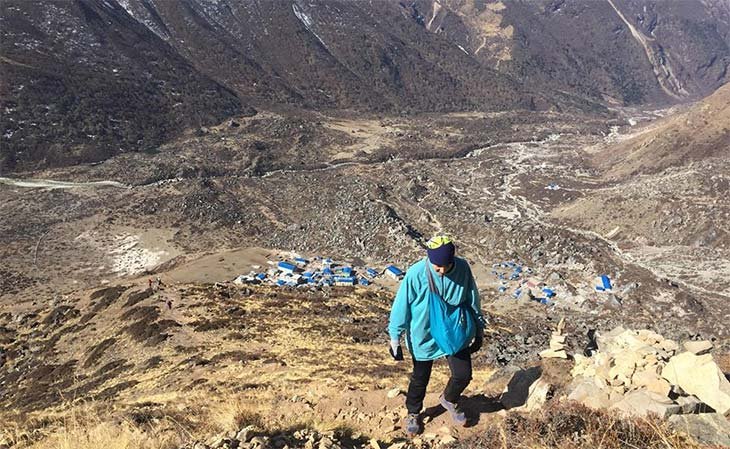
This trek takes you through the Langtang Valley with stunning views of the Langtang ranges. The trek starts in Syabrubesi and follows the Langtang Khola river, passing through small villages, forests, and alpine meadows. During this trek, get the opportunity to hike Tserko Ri, and explore the beautiful Langtang valley.
Tamang Heritage Trek
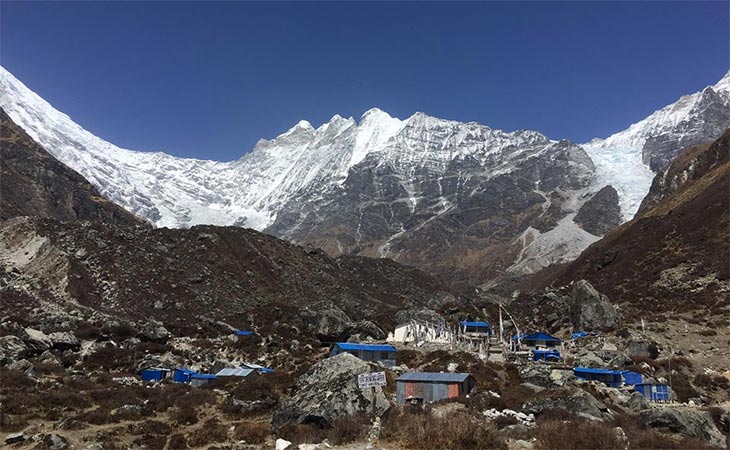
Tamang village of Langtang with its unique culture and traditions of the Tamang people is the major attraction of the Tamang Heritage Trek. Also, enjoy the exotic dances and rituals of the Tamang ethnicities. The snow-capped mountains in the background while trekking adds beauty to this trek. Don’t miss visiting the Tamang museum and learning a little about their culture and tradition.
Helambu Trek
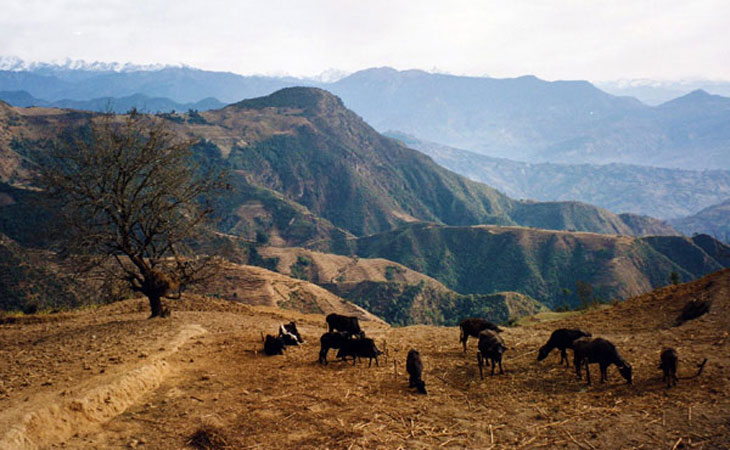
One of the easiest treks in the Langtang region is Helambu Trek. Pass through small villages, forests, and alpine meadows, with the opportunity to visit the ancient Tamang villages, which are known for their unique culture and traditions. Admire the Langtang ranges during this trek.
Gosaikunda Trek
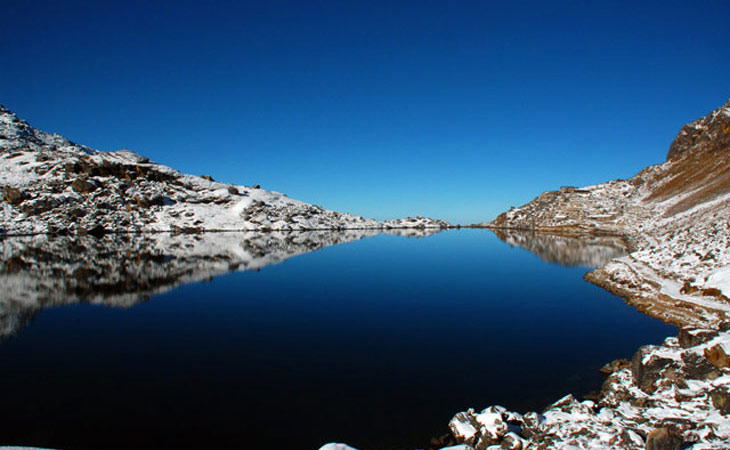
This trek is one of the moderately tough treks in the Gosaikunda trek. Despite the difficult trek, Gosaikunda is the holy lake and its beauty is mesmerizing. The trek journey takes you to several Tamang villages in the vicinity of the Langtang ranges. Besides Gosaikunda Lake, the hike to the surrounding lakes from the Gosaikunda is very exciting. Traversing the highest pass Lauribina of this trek is another interesting part of this trek.
Langtang Region Treks Full Guide | Trek Info, Trek Types, Routes, Permits, Cost, Equipments: Complete Travel Info
Accommodation
Langtang region’s accommodations are mostly locally-owned guesthouses which are basic but comfortable to stay in. In the lower regions, guesthouses with attached bathrooms are there. In the higher regions and at peak seasons, room sharing must be done and the bathrooms are mostly outside the guesthouse. But, it’s a good idea to book ahead, especially during peak season. One must pay the extra cost for the use of Wi-Fi, electricity, laundry, and hot water in the guesthouse.
Food and water
Dal-Bhat is the main dish of Nepal. Hence, in the Langtang region also, Dal-Bhat is easily available. Most of the teahouses serve Dal-Bhat along with fresh homegrown vegetables and some pickles. Besides, there are limited food options like noodles, soup, eggs, roti, and hot drinks.
Drinking water is easily accessible from the taps, or purchase bottled water. Fill boiled water from teahouses paying an additional charge too. Bring your own water bottle for convenience. It’s always a good idea to bring a water filter or purification tablets to ensure that you have a reliable source of safe drinking water.
Communication
As already stated, Langtang is the least developed region. So, it is gradually developing. Therefore, communication in the Langtang region is only in the fewer places of lower regions. It is hard to get phone signals and internet connectivity in the higher regions. So, carrying a power bank and using less technology is the best option. A satellite phone facility is there for emergencies.
Transport
The best means of transport for the Langtang region treks is taking a public vehicle ride or booking a private jeep. Since there is no airways, roadways are the only suitable option.
Langtang Region Trek Types & Trek Routes
Langtang Valley Trek
Syabrubesi-Lama Hotel-Langtang Valley-Kyanjing Gompa-Hike to Tserko Ri-Kyanjing Gompa-Lama Hotel-Syabrubesi
Tamang Heritage Trek
Syabrubei-Gatlang-Tatopani-Thuman-Briddim-Syabrubesi
Gosaikunda Trek
Dhunche-Thulo Syabru-Sing Gompa-Gosaikunda-Tharepati via Lauribina-Kutumsang-Chisapani
Helambu Trek
Sundarijal-Chisapani-Kutumsang-Tharepati-Tarke Ghyang-Shermanthang-Melamchi Pul Bazaar
Travel Insurance
It’s a good idea to purchase travel insurance to protect yourself against unexpected events or emergencies that may occur during your trip while trekking in the Langtang region of Nepal.
Look for travel insurance with a policy that covers high-altitude trekking. Especially, look for a policy that does cover all essential activities. Consider the following things while purchasing travel insurance:
- Coverage for medical emergencies
- Coverage for trip cancellations or interruptions due to an unforeseen event
- Coverage for lost or stolen belongings
- Coverage for high-altitude trekking
- Coverage for emergency evacuations
Best time to visit Langtang Region
Spring (March to May), and Autumn (September to November) are the best time to visit the Langtang region. The skies are clear, the weather is bright during the day, and the trails are comfortable to trek during these seasons. The treks in winter and rainy seasons are advisable to plan carefully as the weather is unpredictable as well as the trails are slippery, muddy, and snowy. Also, this region is closed for trekking in the winter season due to extreme cold and snowfall. But, the trekkers can trek in late February month and witness the snowfalls, snow-covered regions, and the real beauty of this region. Still, we recommend you plan carefully if you wish to trek in the off-season.
How to get there?
The Langtang region can be accessed from Kathmandu, the capital of Nepal, by taking a public bus ride or booking a private cab. From there, you can follow several different trekking routes through the region.
Langtang Required Permits & its Cost
The permits for the Langtang region are TIMS and Langtang National Park Permits. TIMS is categorized into three group colors i.e. individual, organized, and SAARC trekkers. The compulsory permits for the Langtang region treks are:
Langtang National Park (LNP)
- USD 30/person (Foreigners)
- USD 15/person (SAARC nationals)
Trekkers Information Management System (TIMS)
- NPR 2000/person (Foreigners)
- NPR 1000/person (SAARC nationals)
- NPR 500/person (Foreign Officials and their families)
How long does it take to issue the permit?
Trekkers must submit all the required documents to the travel agency. It only takes a few hours to issue the permit.
Where to issue the permit?
We require Langtang National Park and a Trekkers Information Management System (TIMS) Permit for the Langtang region treks. One can issue a National Park and TIMS permits from Tourist Service Centre, Exhibition Road, Kathmandu. Since all permits are taken care of by the travel agency, trekkers needn’t worry much.
Just submit the following documents to the travel agency to issue the permits.
- Passport photocopy with 6 months validity
- 4 Passport size photos
- Nepali Visa with the arrival stamp
- Travel Insurance papers (all essential things must cover)
- Flight tickets photocopy
- Agreement Letter to trekking company and Immigration Head
Langtang Region Trek Difficulty
Langtang region treks is less traveled treks compared to the popular Annapurna and Everest region treks. The region is off-beat with rough trails but the beauty of this region is very raw and natural. Hence, this region’s trek is moderately difficult due to numerous steep ascends and descends, high elevations, rough trails, off-beat paths, and the least availability of comfortable accommodations in the higher regions. Having said this all, for the trekkers, this is the USP of this region. If any trekkers wish to travel in a less crowded region and explore real or unexplored beauty, then the Langtang region is a perfect choice.
To trek in this region, trekkers need to be physically and mentally fit. So, the best advice is to participate in short hikes at high altitudes before starting the trek. Take necessary health check-ups and eat a healthy diet. Do some physical training exercises and yoga or meditation for sound mental health. You can fully rely on us with our support as it is always there throughout your journey from the start to the end.
Porter Luggage limitation
The luggage limitation is a maximum of 15 kg per trekker. One porter carries the luggage of two trekkers. The luggage limitation is planned considering the health of the porters.
Langtang Region Altitude Sickness & its Symptoms
Altitude sickness, also known as acute mountain sickness (AMS), is a common condition that can occur when you travel to high altitudes, typically above 2,400 meters (8,000 feet). It is caused by reduced air pressure and lowered oxygen levels at high altitudes, which can affect the way your body functions. Altitude sickness is common in the Langtang region.
Symptoms of altitude sickness can vary from person to person, but common symptoms include:
- Headache
- Dizziness or lightheadedness
- Fatigue or weakness
- Shortness of breath or difficulty breathing
- Loss of appetite or nausea
- Insomnia or difficulty sleeping
- Swelling of the hands, feet, and face
Preventive Guidelines
There are several preventive guidelines one can follow to reduce the risk of developing altitude sickness which are as follows:
- Acclimatize gradually for adjusting to the surroundings
- Stretch the body and do some warm-ups before the trek
- Ascend slowly to give the body time to acclimatize
- Drink plenty of fluids to prevent Dehydration and urinate frequently to help the body function properly
- Avoid alcohol and caffeine, and salty foods
- Avoid strenuous activity
- Get plenty of rest to allow the body time to recover and adjust to the lower oxygen levels
- Make sure to get plenty of sleep and take regular breaks to rest
- Use an oxygen cylinder if necessary in case of difficulty
- Immediately consult with a guide and seek medical attention if necessary
Equipment checklist
Essential Documents: Passport, Travel Permits, Visa Photocopy, Passport size photos
Food: Light snacks, Energy bars, and drink mix
Shoes: Camp shoes, Pair of hiking boots, Rubber sandals
Clothes: Windcheater jacket, Thermals, Insulating Down Jacket, Fleece, Long sleeve shirts, Gloves, Towels, Inner garments, Trekking pants, Trousers, Shorts, Socks, Raincoat, Balaclava, Bandana, Gaiters
Accessories: Sunglasses, Hats/Caps, Sunscreen, Lip Balm, Water bottles, Pocket Knife, Solar chargers, Batteries, Head Lamps, Torch, Umbrella, Sewing kit, Water Purifying solution kits, reusable bags to deposit waste, separate clean/dirty clothes
Equipment: Warm Sleeping bag, Map, Trekking poles, Duffel bag
Note: Customize the above-mentioned checklist as necessary. Buy or rent option is also there in Kathmandu.

